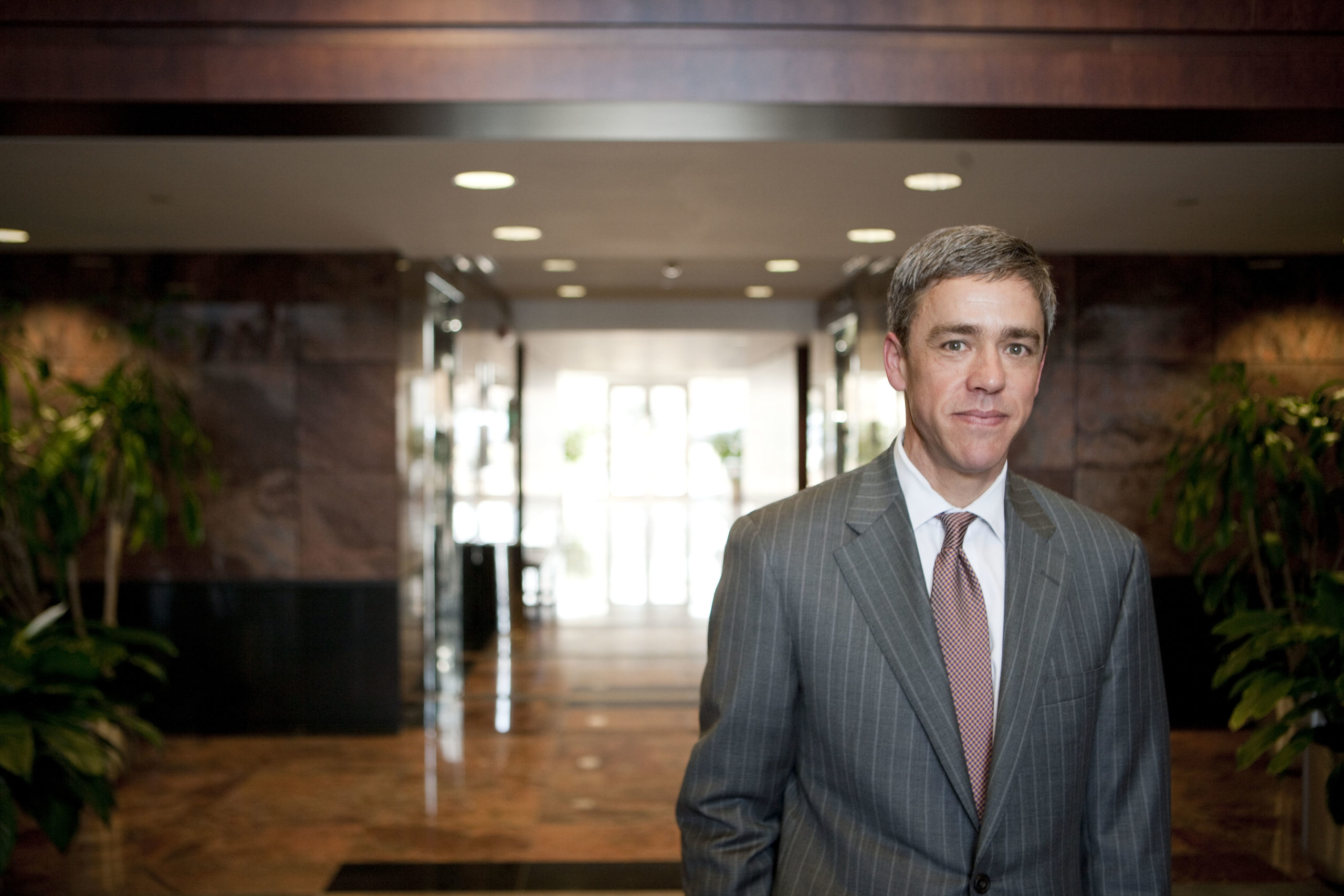
Steve Greene is a man many would call strong. He’s a successful businessman, devoted husband, dedicated father, accomplished marathoner, and an active member of his community. But when Steve was diagnosed with stage IV colorectal cancer at only 43 years of age, he quickly recognized that his own strength would not be enough to carry him through the coming battle. Instead, Steve says it was the community of support and love that surrounded him that gave him the courage to face his journey with hope.
In November 2012, Steve visited his doctor after noticing a few unusual symptoms. Steve didn’t believe it was anything to worry about as he otherwise felt fine—the most serious health condition he had faced in the past decade was a cold. Steve’s doctor recommended a colonoscopy to be safe, and on April 22, 2013, Steve received the shocking results. Though still groggy from the procedure, he clearly remembers hearing, “I have bad news; it’s cancer.”
Scroll Down to Watch Steve’s Video
Surprised and shaken, Steve and his wife Shelton reached out to family members to share the news. Only three years earlier Steve’s father has passed away from prostate cancer. Also, recently, a friend of the Greene’s family had lost her battle against colorectal cancer—the same type of cancer Steve now faced. So, a particularly difficult part of sharing the news with their three young children was trying to explain to them that Steve’s outcome could be different.
During this time, Shelton was an incredible source of strength for Steve. “Early on, she was concerned about what I would have to go through, and I told her, ‘It’s not just me who has cancer; we have cancer,'” Steve remembers. “While I had to go through things physically that she didn’t have to, she had to go through things emotionally that I didn’t have to.” Leaning on each other, Steve and Shelton pushed forward with a resolve to face the diagnosis with faith, peace, and positivity.
Steve was also encouraged by confidence in his medical team’s ability and skill. In May 2013, Steve began a series of radiation and chemotherapy treatments, followed by surgery to remove the tumor in his colon and liver and another round of chemotherapy. When Steve began treatment, his nurse navigator recommended that he research diet recommendations on My PearlPoint, as treatments would affect his digestive tract. “While we eat well-balanced meals, neither my wife nor I are nutrition experts,” Steve says. “So it was definitely helpful to find a list of items to avoid, like salads and spicy foods, to help get me through the process.”
Throughout his treatments, Steve was overwhelmed by the outpouring of support from others including his mom, sister, in-laws, coworkers, neighbors, and church community. “They supported me in so many ways—through notes, meals, stepping in at work, and more. I think it could be easy to try to ‘man up’ during times like these,” Steve says. “We don’t want to burden the people we care about with our struggles. But I got past that pretty quickly. I needed help, and there were so many people willing to pitch in. I think that was a big part of what made my treatment successful.”
In January 2014, Steve finished his last chemotherapy treatment. He remembers the day as a strange and surreal one, but one for which he is thankful. His most recent PET scan came up clear, and Steve is happy to return to a normal routine of work and life again. While he says the possibility of recurrence does enter his mind from time to time, he makes an active effort not to dwell on the idea or the statistics. “We all know that worrying about things outside of our control doesn’t help anything,” he says, “but it takes work to get your mind somewhere else—to intentionally be positive.”
It’s this intentional attitude that has impressed many people who have watched Steve fight cancer, but Steve does not accept any of the praise. “It’s definitely not a one-man show,” Steve says. “I didn’t do anything but show up and accept the help of others. It’s all about finding your source of strength, no matter what that is. For me it was my wife, my family, my faith, my coworkers, and my medical team—that’s how I was able to get through this.”

